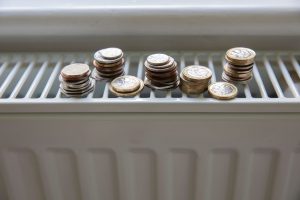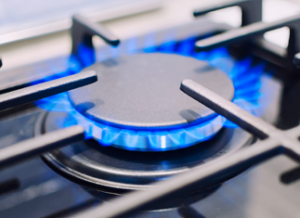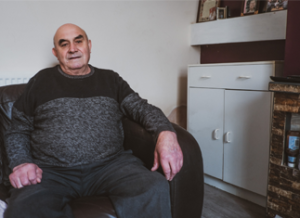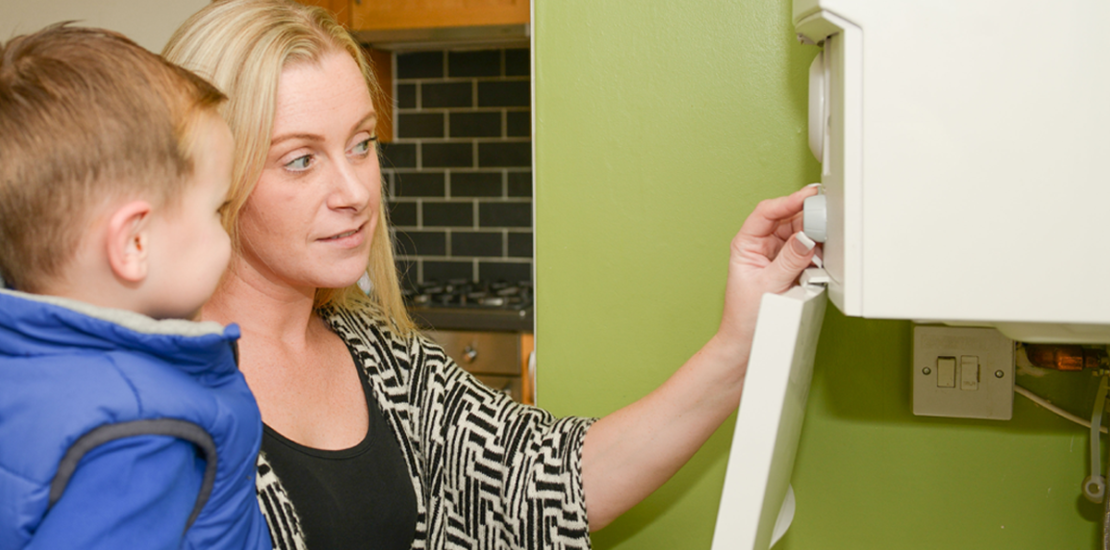
‘Too scared to turn on the heat’ – 40% of Northern Irish households are still in fuel poverty
Posted on 26th Nov 2024
New polling by LucidTalk, commissioned by National Energy Action Northern Ireland (NEA NI), shows the extent of fuel poverty in
Nation / Region:
Northern Ireland

Price cap predicted to rise: Charity warns households ‘will go into winter with less support and higher energy bills’
Posted on 19th Aug 2024
Energy sector consultancy Cornwall Insight has predicted that the October price cap level will rise for a ‘typical’ household, ahead

Over £3 billion energy debt wipes out price cap drop for millions of customers
Posted on 30th Mar 2024
Fuel poverty charity National Energy Action says that despite the price cap falling £238 a year for typical households from April, 2.3

Despite energy bills falling, 6 million UK households to remain trapped in fuel poverty come April
Posted on 23rd Feb 2024
Today (Friday 23 February), the GB energy regulator Ofgem has announced the new level of the energy price cap, for 1 April
Nation / Region:
Wales
,
Scotland

Vulnerable households urged not to miss out on Warm Home Discount again
Posted on 17th Oct 2023
Fuel poverty charity National Energy Action (NEA) is urging vulnerable households across Great Britain not to miss out again on

National Energy Action responds to energy debt reaching its highest level ever
Posted on 12th Oct 2023
Energy regulator Ofgem announced that energy debt reached £2.6 billion – its highest ever level.

Standing charge rises are hurting low-income households
Posted on 08th Sep 2023
The standing charge is a fixed daily fee applied to energy bills. It covers the cost of maintaining the infrastructure

Over a million vulnerable households missed out on vital energy crisis support last winter
Posted on 06th Sep 2023
Today, the chief executive of fuel poverty charity National Energy Action (NEA) told MPs that over a million vulnerable households

Nearly half of Gypsy and Traveller communities may not have received any Government energy crisis support
Posted on 10th Aug 2023
New research finds many in the Gypsy, Traveller, Roma, and Nomadic (GTRNCs) communities have been left without government support during

UK Government energy support ends for over 20 million households tomorrow – leaving 6.6 million in fuel poverty
Posted on 30th Jun 2023
Tomorrow (1 July) UK Government energy bills support ends for over two thirds of households across the UK. Ofgem’s price

Committee on Fuel Poverty’s annual report – National Energy Action’s response
Posted on 26th Jun 2023
Commenting on the publication of the Committee on Fuel Poverty’s annual report Adam Scorer, Chief Executive of National Energy

ONE WEEK COUNTDOWN: Thousands of households are in danger of missing out on vital energy vouchers
Posted on 26th Jun 2023
30 June is the deadline for those who have not yet had their Energy Bills Support Scheme vouchers to get them

National Energy Action: new prepayment meter code of practice is “much needed” but many still face “uncertainty”
Posted on 18th Apr 2023
Ofgem announced a new code of practice for suppliers concerning the forced installation of prepayment meters.

Over 1,400 vulnerable households kept on gas supply thanks to industry first programme
Posted on 23rd Mar 2023
New research from fuel poverty charity National Energy Action shows how a partnership with the Cadent Foundation has kept 1,467 households

Fuel poverty charity calls for ban on forced prepayment meter installations
Posted on 03rd Feb 2023
Following reports of suppliers using warrants to forcibly install prepayment meters in customers’ homes, fuel poverty charity National Energy Action

Fuel poverty charity reveals 45 people per day die from cold homes
Posted on 20th Jan 2023
Today the Office of National Statistics (ONS) release figures showing there were 13,400 more deaths in England and Wales in the

Ninety-five organisations call for the introduction of a social tariff
Posted on 17th Jan 2023
New Fuel Poverty Monitor report which investigates the impact of the energy crisis on fuel poor households recommends the introduction

New details announced on cost of living payments
Posted on 03rd Jan 2023
The Government’s targeted support won’t be enough however to stop millions of vulnerable people sinking further into debt

Fuel poverty charity joins calls for investigation into why so many energy prepay customers have not received support
Posted on 20th Dec 2022
We are joining Which?, Citizens Advice, Age UK and Money Saving Expert in calling on energy firms and the government

Fuel Poverty Awareness Day: we hope the government is paying attention
Posted on 07th Dec 2022
Our Fuel Poverty Awareness Day on Friday 2 December took place in the most desperate circumstances we’ve seen at National

8.4 million UK households will be in fuel poverty from April, says National Energy Action
Posted on 01st Dec 2022
Ahead of National Energy Action’s Fuel Poverty Awareness Day on Friday 2 December, the charity releases new figures to show

National Energy Action comments on Ofgem changes to GB Energy Price Cap
Posted on 24th Nov 2022
National Energy Action comments on Ofgem changes to GB Energy Price Cap

New charity single ‘This Christmas’ released to support National Energy Action
Posted on 21st Nov 2022
Songwriter Eliot Kennedy is going to donate proceeds from his new single, 'This Christmas', to National Energy Action, with former

42% of vouchers for customers with older prepayment meters have yet to be redeemed
Posted on 18th Nov 2022
New UK Government data released today highlights 42% of vouchers for customers with older prepayment meters have yet to be redeemed

Over half a million households no longer eligible for UK Government energy rebate
Posted on 16th Nov 2022
The UK Government is changing the targeting of the Warm Home Discount scheme and National Energy Action is concerned that
Nation / Region:
Wales
,
UK

As energy prices rise again, one quarter of parents have already cut back on the quantity of food to afford essentials
Posted on 30th Sep 2022
Fuel Poverty charity National Energy Action (NEA) and The Food Foundation have joined forces with a new survey and joint

Fuel Poverty charity’s reaction to Liz Truss’s energy freeze announcement today
Posted on 08th Sep 2022
Today the UK Government has confirmed unmanageable gas and electricity bills across Great Britain will be frozen at an average

Over half of parents may resort to washing children’s school uniforms by hand, amid cost-of-living crisis
Posted on 07th Sep 2022
New polling from YouGov and charity National Energy Action reveals that low-income parents will struggle to afford to wash their

Charity comments on BEIS Committee report on energy pricing and the future of the energy market
Posted on 25th Jul 2022
Energy prices continue to spiral, and vulnerable households in the energy market are being hardest hit. It is vital that
Nation / Region:
Wales
,
UK

8.2 million UK households could be in fuel poverty from October
Posted on 22nd Jul 2022
Energy experts Cornwall Insight predicted that when the price cap rises in October, the average energy bill could reach £3,250 per

Solving the cost of living crisis: the case for a new social tariff in the energy market
Posted on 05th Jul 2022
On 4 July 2022, National Energy Action published a new report arguing for the introduction of a social energy tariff for low-income
Nation / Region:
Wales
,
UK
,
Scotland
Fuel Poverty
,
Fuel Poverty Strategy
,
Ofgem
,
Research
,
Policy & Research
,
Policy
,
News
,
News Release
,
Reports
,
UK Government
,
Social justice

Vulnerable households “left with no choices” as sky rocketing prices hit
Posted on 31st Mar 2022
On Friday 1st April an average of over 22 million domestic energy customers across Great Britain will see their home energy

Charities warn £3,000 energy bill could leave 8.5 million UK households in fuel poverty
Posted on 04th Mar 2022
Chancellor urged to rethink ‘heat now, pay later’ rebate and protect low-income and vulnerable households from soaring energy bills.

Government plans for energy crisis ‘woefully inadequate’
Posted on 03rd Feb 2022
Soaring increases mean the cost of heating an average home will have doubled in 18 months and the in fuel poverty

NEA Northern Ireland statement on Emergency Fuel Payment Scheme
Posted on 24th Jan 2022
Over the last number of weeks, we have experienced a significant rise in the number of households seeking emergency support
Nation / Region:
Northern Ireland

Urgent need to release funding for a broader package of support for fuel poor households in Northern Ireland
Posted on 12th Jan 2022
Letter to Minister
Nation / Region:
Northern Ireland

The impact of the energy crisis in Northern Ireland
Posted on 11th Jan 2022
Letter to NI MPs re the ongoing impacts of the energy crisis in Northern Ireland.
Nation / Region:
Northern Ireland

Fuel Poverty Awareness Day 2021
Posted on 16th Dec 2021
“My teenager covers himself in layers to keep warm …”

Fuel poverty campaigner Maria Wardrobe presented with OBE at Windsor Castle
Posted on 09th Dec 2021
The North East’s Maria Wardrobe has been presented with her OBE this week at Windsor Castle in recognition of

Energy crisis will double average heating bill from April
Posted on 03rd Dec 2021
Fuel poverty charity National Energy Action has today warned average domestic energy bills have already soared by over £230 per customer

New report highlights UK won’t reach net zero without support for poorer households
Posted on 30th Nov 2021
Charities warn recent broken manifesto promise means the poorest households, living in least efficient homes are set to miss out
Fuel Poverty
,
Energy Tariffs
,
Cold Homes
,
Energy Costs
,
Inequality
,
Fuel Debt
,
Debt
,
Energy Markets
,
Decarbonisation
,
Net Zero
,
Energy

Cost of living in the UK soaring up to its highest level in a decade
Posted on 17th Nov 2021
Today the Office for National Statistics released their forecast of consumer price inflation. Inflation rose steeply in October to its

“We all pay the price for leaving the poorest out in the cold”
Posted on 28th Oct 2021
Regrettably the Chancellor chose not to provide any additional support to help with the soaring costs of energy.
Nation / Region:
Wales
,
UK

New energy strategies fall £1.4bn short of manifesto pledge to help the poorest households
Posted on 19th Oct 2021
NEA warns that investment is less than half of the funding pledged within the Government’s 2019 manifesto for the poorest

Fuel poverty charity comments on ‘devastating’ increase to energy price cap
Posted on 06th Aug 2021
Today the GB energy regulator, Ofgem, has announced the biggest ever increase to the energy price cap.

NEA responds to Environmental Audit Committee report calling for front loading of energy efficiency spending to help fuel poor households
Posted on 22nd Mar 2021
the Environmental Audit Committee has published a report on how to improve the energy efficiency of the UK's building stock.

Fuel poverty charity warns new Welsh Government Fuel Poverty Plan could leave thousands left out in the cold for years to come
Posted on 02nd Mar 2021
Today the Welsh Government has released its new Fuel Poverty Plan.

Meet the Utilita Energy High 5 Winners
Posted on 11th Dec 2020
This winter will be difficult for thousands living in fuel poverty – which is why NEA has partnered with Utilita to

How to get involved with Fuel Poverty Awareness Day
Posted on 09th Oct 2020
Friday 27 November will mark Fuel Poverty Awareness Day 2020 and we have never needed your support more to get key messages

Welsh Government releases new plan to end misery of cold homes
Posted on 30th Sep 2020
The Welsh Government has published a consultation on plans to tackle fuel poverty in Wales. NEA Cymru welcomes the opportunity

Llywodraeth Cymru yn rhyddhau cynllun newydd i ddod â diflastod cartrefi oer i ben
Posted on 30th Sep 2020
Heddiw mae Llywodraeth Cymru wedi cyhoeddi ymgynghoriad ar gynlluniau i daclo tlodi tanwydd yng Nghymru. Mae NEA Cymru yn croesawu’

Frontline organisations warn of a difficult winter ahead for fuel poor households if urgent action isn’t taken
Posted on 19th Sep 2020
A new report released today warns of significant hardship for fuel poor households in the coming winter, as a potent










































